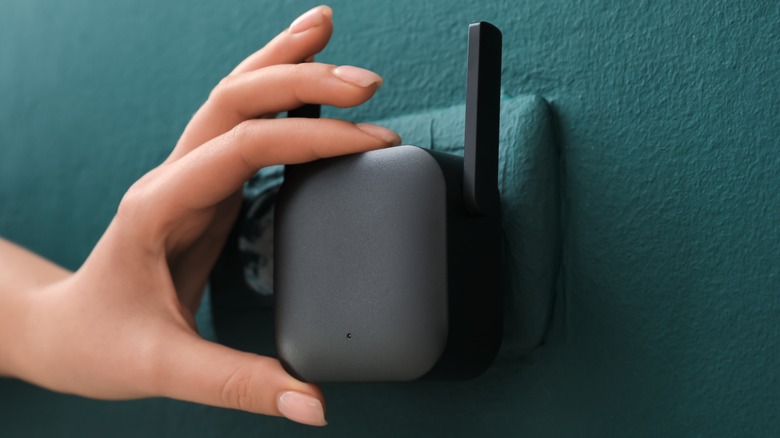If your Wi-Fi router is struggling to cover your entire home and you’re often dealing with dead zones, two of the most common solutions you’ll encounter are mesh networks and range extenders. While both are designed to expand your Wi-Fi signal, they rely on fundamentally different technologies to do so, resulting in distinct trade-offs in cost, ease of use, and performance.
A mesh network, which is often marketed as a whole-home Wi-Fi solution, is a system of interconnected devices that includes a primary node and one or more satellite nodes. These nodes create a single, unified Wi-Fi network that covers your entire home. As the satellite nodes are placed at different spots in your home, a mesh network is able to deliver better coverage than a single router in a seamless way.
Unlike mesh systems, a range extender or a repeater is placed in the coverage area of your existing router. It then accepts the router’s signal and rebroadcasts it as part of a new Wi-Fi network. This expands the original Wi-Fi signal to the areas of your home that were previously unreachable. But when it comes to picking between the two, you’ll need to weigh their benefits and drawbacks to decide what matters most for your home network.
How are mesh systems and range extenders different?
Wi-Fi mesh systems are an excellent way to deal with Wi-Fi coverage woes, particularly in large homes with lots of dead zones. They provide seamless Wi-Fi access all over your property and offer centralized management for convenience. However, mesh systems are not suitable for everyone because they can be significantly more expensive than range extenders. Even a budget Wi-Fi 6 mesh system with three nodes can cost over $100, with prices going higher for newer Wi-Fi generations and advanced features. Additionally, mesh networks require some form of backhaul for communication and data transfer. Unfortunately, many affordable options don’t allow wireless backhaul; opting for a wired backhaul is the only solution. That said, wired solutions too can be a hassle if your home lacks Ethernet connectivity.
Wi-Fi range extenders, on the other hand, are affordable and work with your existing router, which is helpful if you don’t want to set up your entire network again. However, they add latency to the connection and are typically slower than a mesh system, as half of their bandwidth is spent communicating with the primary router. More importantly, an extender creates its own Wi-Fi network, which may be different from your primary Wi-Fi. This can be inconvenient, as your mobile devices may latch onto a weaker network even if a stronger signal is available, requiring you to switch connections manually.
Which is more suitable for your needs?
A mesh system is typically a better solution for anyone looking to eliminate Wi-Fi coverage issues while ensuring a respectable connection speed. The best mesh systems offer much better performance than range extenders, are easier to manage, and you don’t have to worry about multiple Wi-Fi networks. It’s also scalable, as you can easily extend the coverage area in the future by adding a new node.
It’s particularly a no-brainer if your home is already connected with Ethernet cables or you are willing to make the effort to wire it up. With Ethernet serving as the backhaul, you’ll get the best possible internet speeds for your connection. However, a range extender can also be a good fit if you need to deal with small dead zones, and having a relatively slow Wi-Fi speed is not a deal-breaker. Even so, the best Wi-Fi extenders can still provide acceptable speeds, especially for the less-used spaces of your home. Another point in favor of a Wi-Fi extender is its low cost, which is beneficial if you have a limited budget.











